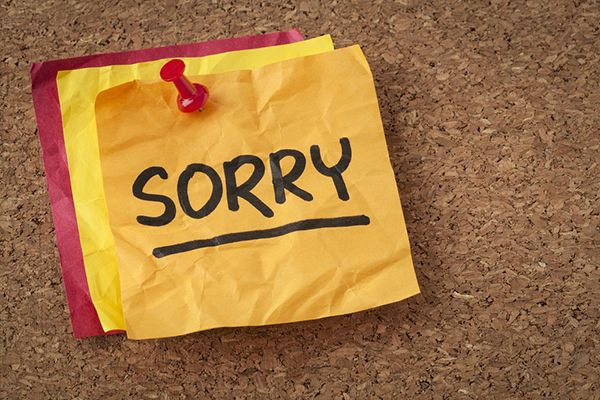views

The Power of Words in a Digital Storm
We live in a world where one tweet, one video, or one offhand remark can spark global outrage in a matter of hours. Corporate apologies used to be an afterthought, something legal teams drafted once the storm passed.
Not anymore. Today, they’re often the first line of defense in a crisis. And surprisingly, it’s not always the mistake that ruins a brand’s reputation, it’s how the company responds.
Think back to 2017, when United Airlines made headlines for all the wrong reasons. A paying passenger was violently dragged off an overbooked flight. The footage went viral, and the backlash was swift.
United’s first public response? A sterile, corporate-speak statement that felt like it was written for a quarterly report. It lacked emotion. It lacked responsibility.
And worst of all, it lacked humanity. By the time they followed up with something warmer, the damage was done. Trust was fractured. The memes were everywhere. Their stock took a hit.
Imagine if they’d led with empathy. What if their first move had been to acknowledge the harm, take full responsibility, and outline how they’d make things right? The backlash may have still come but perhaps softer. Perhaps shorter.
That’s the power of a real apology. It’s not just saying “we’re sorry.” It’s owning up, showing you care, and proving you’ll do better. A Bloomberg Media Kit might flaunt your media strength, but a sincere apology? That shows your brand’s heart.
For founders trying to cut through the noise of an always-on world, where every statement can be screenshotted, shared, and scrutinized, that kind of guidance isn’t just useful. It’s transformative.
It’s the difference between sounding reactive and being remembered as resilient. It’s the difference between surviving the blow and turning it into a brand-defining moment.
That’s exactly what this article is here to give you: not just a crash course in crisis, but a modern guide to mastering the apology as a strategic tool, an honest, human tool.
We’ll explore how to craft statements that aren’t just safe, but sincere. You’ll see how the best brands turn tough moments into powerful turning points earning back trust, strengthening loyalty, and walking away with their dignity intact.
We’ll share expert advice, psychological insights, and real-life examples of what works and what backfires. You’ll walk away with more than theory. You’ll have a proven roadmap for saying the right thing, in the right way, at the right time.
Whether you’re building your first company, running PR for a growing brand, or leading a large corporation, this guide is here to help you respond not just smartly but sincerely.
The Power of a Real Apology
A great apology isn’t just muttering “we’re sorry.” It’s about showing you get it, taking full responsibility, and proving you’ll do better.
That’s where a firm like 9FigureMedia comes in, a communications powerhouse that’s rewriting the playbook for crisis management.
With razor-sharp press releases, agile ad strategies, and crisis comms that cut through the chaos, 9FigureMedia equips startups and small businesses to stand tall in a storm.
For entrepreneurs navigating this high-stakes world, their expertise isn’t just helpful it’s a lifeline. In this guide, we’ll dive into how companies can transform apologies from awkward necessities into moments of credibility.
With real-world stories, psychological insights, and practical tips, we’ll unpack what makes an apology resonate and what makes it crash and burn.
Whether you’re a startup founder, a PR pro, or a C-suite veteran, this is your playbook for saying the right thing when it matters most.
Apologies in the Age of Accountability
We’re in an era where brands need to respond to screw-ups with the warmth of a best friend. Gone are the days of vague, corporate-worded statements.
Today’s audiences demand fast, sincere, and actionable responses. Sincerity is non-negotiable, customers want transparency and accountability, not polished deflections. A tone-deaf apology can do more harm than silence.
Public opinion moves at lightning speed, and rebuilding trust hinges on being real. Words matter. Weak phrases like “We regret this occurred” sound empty. Bold ones “We screwed up and we’re fixing it” carry weight.
The Anatomy of a Great (and Awful) Apology

The Psychology Behind the Words
Why do apologies hit so hard? They validate feelings. People want their frustration or pain to be seen and taken seriously.
Dr. Roy Lewicki, a conflict resolution expert, says the best apologies have six key pieces: genuine regret, a clear explanation of what went wrong, full ownership of the mistake, a promise to change, an offer to make things right, and a direct ask for forgiveness.
A Case That Nailed It: Starbucks
In 2018, when two Black men were arrested in a Philadelphia Starbucks for simply waiting for a friend, the backlash was swift and fierce.
Starbucks didn’t just toss out a statement they acted. They closed 8,000 stores for a day of anti-bias training. Their apology wasn’t just words; it was a commitment to do better. Customers felt it, and trust began to rebuild.
A Case That Tanked: BP’s Oil Spill
During the Deepwater Horizon disaster, BP’s CEO infamously groaned, “I want my life back.”
That self-centered line obliterated any chance of goodwill, shifting focus to his own inconvenience instead of the massive environmental and human toll. The lesson? Keep the spotlight on those impacted, not yourself.
Speed and Sincerity: The Winning Combo
In a crisis, waiting is poison. A quick holding statement within the first hour, followed by a full, thoughtful response within 24 hours, can stop the bleeding.
Toyota’s sluggish response to its 2009 accelerator recall let anger fester. Speed matters, but sincerity matters more. If you can’t be fast, at least be real.
MSN News often spotlights apologies that go viral, not because they’re flawless, but because they hit the right emotional chord. A short, honest message beats pages of legal jargon any day.
Delivery: Pick the Right Stage
Sometimes, a written statement feels too stiff. A heartfelt video from the CEO or a raw social media post can connect better with today’s audiences.
Whatever the channel, the message needs to be authentic, clear, specific, and accountable. One misplaced phrase can do immense damage.
That’s where communications experts shine, sharpening your words to rebuild trust, not break it.
Classic vs. Contemporary: A New Playbook
Old-school apologies were stuffy, legal-toned, passive, and sent out via dry press releases.
Modern apologies? They’re emotionally intelligent, use active voice with full accountability, and are shared via video, social media, or direct-to-customer channels.
Today’s consumers are sharp, they sniff out inauthenticity in seconds. Too vague, and you sound evasive. Too raw, and your legal team might lose it.
Walking this tightrope is where seasoned pros make their mark.
What the Future Holds?
Technology is about to shake up how brands say sorry. Real-time sentiment analysis will let companies tweak their tone on the fly. We might see apologies tailored to specific audiences, different messages for different regions or customer groups.
Imagine AI-powered dashboards tracking public reactions live, helping teams refine their message mid-crisis. This responsiveness will be crucial as people grow less tolerant of generic, corporate responses.
We could even see apology A/B testing, where brands try multiple versions to find what resonates most. What lands in Tokyo might flop in Toronto.
Blockchain could make apologies verifiable publicly proving companies follow through on promises. This tech-driven transparency could set new standards for trust, especially in investor and consumer communications.
For startups, a well-crafted apology can be a turning point. It can earn trust or send customers running. Small businesses rarely get a second shot.
One apology could mean the difference between landing funding or losing credibility overnight. In a future where AI drafts first versions and consumers demand truth in every interaction, sincerity will be a brand’s greatest asset.
Apologies won’t just be statements, they’ll be strategy. Companies that master this will build reputations that last. Those who don’t? They’ll be digital cautionary tales.
From Mistakes to Momentum
A poorly handled mistake can become your brand’s defining failure. Handled with care, it can make you more human and more respected.
Saying sorry isn’t about giving in. It’s about showing strength through vulnerability, leadership through humility.
Whether you’re launching a startup or drafting a critical startup press release, remember: the right apology, at the right time, with the right tone, doesn’t just save your reputation, it builds it.
A powerful apology can spark long-term transformation. It’s not the crisis people remember; it’s the courage and commitment you show in response.
As Warren Buffett said, “It takes 20 years to build a reputation and five minutes to ruin it. If you think about that, you’ll do things differently.”
A real apology is one of those things.
For founders navigating the wild waters of digital PR, a startup press release with a well-crafted apology sets you apart.
It signals maturity, ethics, and respect for your audience, qualities customers and investors demand in today’s value-driven economy. Apologies can also drive internal change.
Employees rally behind leaders who own their mistakes. Stakeholders trust you more. Investors stick with teams that show resolve and emotional intelligence under pressure.
The ripple effect is huge. Strategic apologies can even be marketing gold. When a brand weaves humility into its story, it creates a narrative of growth from mistake to responsibility to resolution to strength.
That’s the kind of arc that fuels compelling startup press release campaigns and keeps customers loyal.
Apologies aren’t bandages, they’re blueprints. Include action steps, share timelines, show proof and keep evolving.
What worked in 2010 won’t cut it in 2025. Your apology, like your startup press release, needs to reflect your brand’s growth, its global reach, its cultural awareness, and its readiness to listen, adapt, and grow.
Handled well, an apology isn’t the end. It’s a launchpad.










